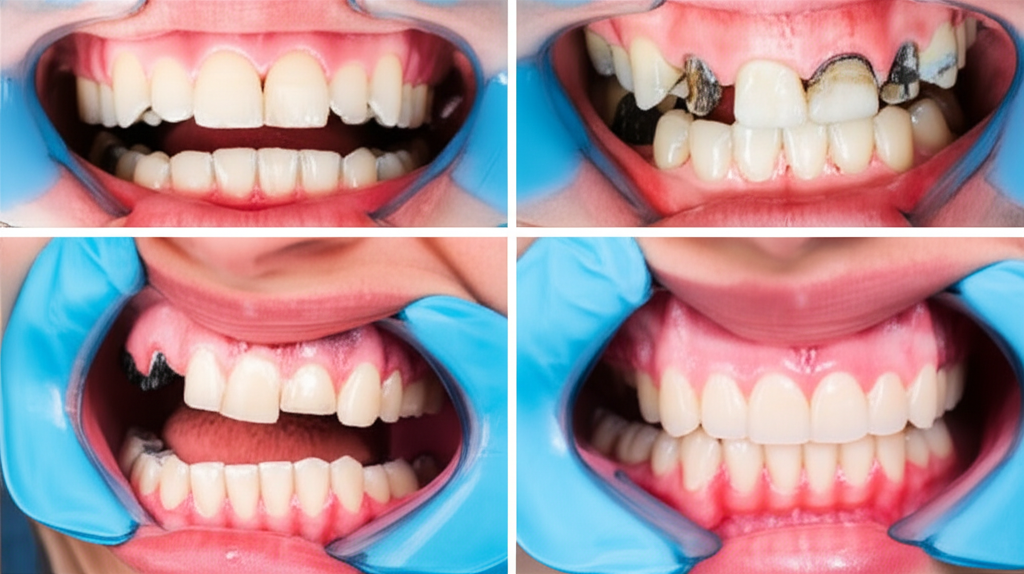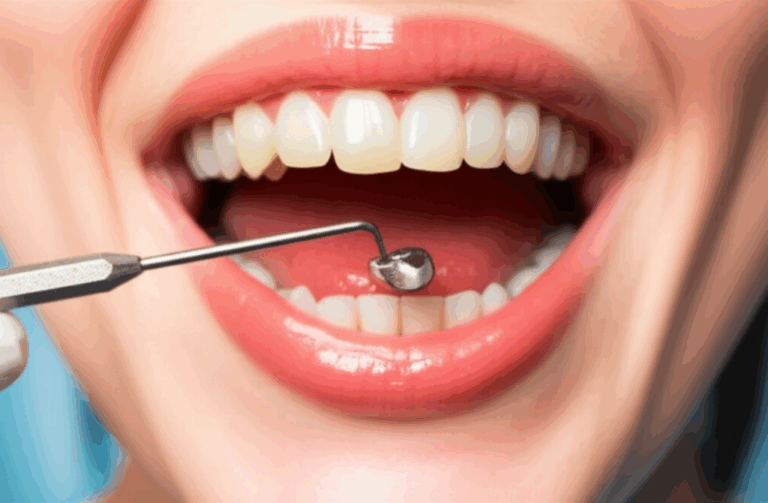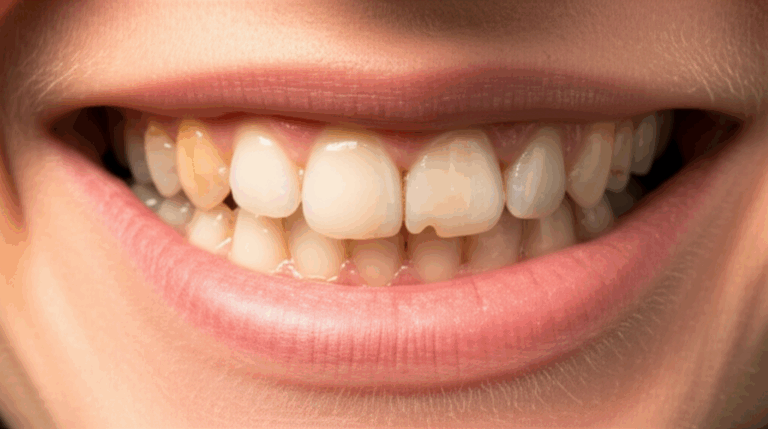
Can Your Teeth Stop You From Serving? Military Dental Disqualification Rules Explained
Ever wondered if a cavity or a missing tooth could keep you from wearing the uniform? You’re not alone. Millions of future soldiers, from hopeful high school graduates to adults changing jobs and even their parents, have looked in the mirror, touched a sore tooth, and wondered: “Is my smile good enough for the military?” Let’s dig in and find out, using the same simple, honest advice you’d get from a good health teacher.
Table of Contents
- The Real Reason Oral Health Matters in the Military
- The Military’s Dental Rules (And Who Makes Them)
- Which Dental Problems Can Stop You from Joining (with Examples)
- How the MEPS Dental Check Actually Works
- What Dental Readiness Classes Mean: Which Ones Are Okay?
- Can You Get a Waiver for Dental Problems?
- Helpful Tips: How to Fix Dental Problems Before Joining
- Quick Summary and What To Do Next
The Real Reason Oral Health Matters in the Military
Let’s be clear: the U.S. military isn’t checking your teeth just for looks. It’s all about being ready for anything. Picture being far away from home, with no easy way to see a dentist. All of a sudden, a small toothache turns into bad pain—or worse, a serious infection. No one wants that during basic training, a mission, or while deployed.
So, before you wear the uniform, your mouth needs to be able to handle tough days. It’s about keeping you safe and able to do your job—not about making sure you have a perfect smile.
The Military’s Dental Rules (And Who Makes Them)
Who makes the rules? For all military branches—Army, Navy, Air Force, Marines, Coast Guard, and Space Force—it’s the Department of Defense (DoD) Instruction 6130.03. Think of it as the main guide for health and dental rules for new recruits. The big rule? You must not have any mouth problem that would mess up your training or keep you from going anywhere in the world. In simple words: if it could turn into a dental emergency, you need to fix it before you show up at MEPS (Military Entrance Processing Station).
Which Dental Problems Can Stop You from Joining (with Examples)
Let’s go over the most common dental reasons you may not be able to join, one by one—in plain language.
1. Cavities That Haven’t Been Fixed
If you have one or more cavities that haven’t been filled, especially if they might hurt or get infected, you can’t go forward yet. The military calls this “active caries,” and it’s a top dental reason you can’t join.
Why is this a problem? An untreated cavity is like a small roof leak. Maybe it’s no big deal today, but one big storm can turn it into an emergency. The military wants to know you won’t need a sudden root canal far from home.
What to do: Get those cavities filled before your MEPS exam. That way, you’ll have less to worry about.
2. Gum Disease
There’s gum irritation (gingivitis), which can get better with a cleaning and care. Then there’s worse gum disease, where your gums and even the bone get damaged.
The deal-breaker: If your gum disease is really bad and isn’t under control, you’ll need to get it treated and show that you’re better before going on.
Think about giving orders, carrying a heavy backpack, or just sleeping well with sore, bleeding gums. There’s too much risk for tooth loss and infection.
3. Problem Wisdom Teeth
Wisdom teeth can cause lots of trouble. If they’re stuck, painful, infected, or causing other problems, you need to fix them before you join. Not all wisdom teeth need to be pulled—just the ones causing problems.
Rule of thumb: If your wisdom teeth are painful, swollen, or infected, you probably need to get them pulled before MEPS.
4. Missing Teeth and False Teeth
Some people think you need a “full set” of natural teeth. Not true! If you’re missing so many that eating is hard, or you can’t chew the military’s food, that’s a problem.
Allowed: If you have good, working partials, dentures, or bridges, you’re usually okay, as long as you can chew. (Check our removable denture lab to learn about these.)
Not allowed: Large empty spaces, loose or wobbly dentures, or missing front teeth that make it really hard to talk or eat could mean you can’t join until they’re fixed.
5. Braces or Ongoing Teeth Straightening
Simple answer: You can’t do basic training with braces on your teeth. Removable retainers (after your braces are off)? Usually fine.
Why? Braces can break easily, and there’s no way to see your orthodontist at boot camp. Finish your braces, take them off, and you’re set.
6. Jaw Problems (TMJ, Bad Bite)
- If you have chronic jaw pain, jaw locking, or hard time chewing (TMJ), and it keeps you from eating or talking normally, you should take care of it before joining.
- Really bad bite problems (where your teeth don’t fit together and it makes it hard to eat or talk) will also hold up your application—at least until treated.
7. Lumps, Cysts, or Growths in the Mouth
Any strange lump, cyst, or growth in your mouth needs to be checked. Oral cancer or untreated big cysts are solid reasons you can’t join, since they can make you very sick.
8. Any Infection or Big Dental Problem
Abscesses (pockets of pus), infections in the jawbone, and major swelling will keep you from moving forward. An untreated infection could even put others at risk if you needed a quick trip to the hospital.
9. Other Reasons You Might Not Qualify
- Broken teeth or jaw that haven’t been fixed: You need to fix these first.
- Recent mouth surgery that’s not healed: You need your doctor’s okay and proof that you’re better.
- Speech problems caused by dental issues: These will be checked to see if you can talk clearly and safely give commands.
If you’re not sure: If it hurts, bleeds, or you’re scared to chew, you probably need to get it checked out before MEPS.
How the MEPS Dental Check Actually Works
Think of MEPS as the door into the military—it’s where your health (including your mouth) gets checked to make sure you’re ready.
Here’s what happens:
Tips:
- Go to the dentist for a cleaning before you show up.
- If you’ve had major dental work, ask your dentist for a note.
- Fix obvious problems early. It’ll save you stress.
What Dental Readiness Classes Mean: Which Ones Are Okay?
The military uses something called Dental Readiness Classification (DRC). Here’s the simple version:
- DRC 1: No treatment needed—you’re all set!
- DRC 2: You might need a small filling or check-up, but nothing urgent. Usually still okay to join.
- DRC 3: Your dental problem could become a big deal if you don’t fix it (big cavity, sore wisdom tooth, infection). Not cleared yet—you need treatment.
- DRC 4: They don’t know your dental status—maybe you haven’t seen a dentist in a long time. You’ll need to get checked.
Bottom line: You want to be at DRC 1 or 2 before MEPS says yes.
Can You Get a Waiver for Dental Problems?
Let’s be honest: sometimes things happen. Maybe you lost a tooth in an accident, or your braces are coming off after MEPS. Is there any way around this?
That’s where a dental waiver comes in. Sometimes—if you can show you’re fixing the issue, or you’re a really good candidate—the military might approve a waiver. Here’s how it works:
- Most likely to get a waiver: Small, stable problems if you have a plan to fix them, or fake teeth that will be done before you go.
- Rarely waived: Active infection, ongoing pain, braces still on, untreated gum disease, or anything likely to need care in the near future.
- How to ask: Your recruiter sends your case (with records) to higher-ups. There’s no promise, and it can take weeks.
Advice: If you can treat your problem, do it! It’s quicker and easier than waiting for a waiver.
Helpful Tips: How to Fix Dental Problems Before Joining
Ready to get started? Here’s what you can do for a smooth MEPS visit—and beyond:
- Get a full exam a few months before you plan to join.
- Fix all cavities, clean your gums, and talk about wisdom teeth.
- Bring x-rays and proof of all work, such as crowns, bridges, dentures, or surgeries.
- The more info you have, the less likely MEPS is to stop you.
- Set up removal with your orthodontist ahead of time.
- Removable retainers are fine, but get a note saying you’re done with treatment.
- Brush and floss twice every day.
- Chew sugarless gum, rinse after eating, and use mouthwash if told to.
- Good habits keep surprise problems away.
- Don’t guess. Ask your dentist and get a note if you’ve been treated.
- If you can’t pay for care, ask your recruiter about clinics or help near you.
- Some dental schools, china dental lab, and public health clinics offer low-cost help.
Remember: You’re not just passing a test—you’re making sure your start in the military is pain-free and easy.
Quick Summary and What To Do Next
Still worried? Here’s a simple checklist to help you succeed.
What Can Stop You from Joining the Military?
Dental issues that WILL stop you (until fixed):
- Cavities that haven’t been filled, especially if they might hurt or get infected
- Unfixed gum disease
- Bad or sore wisdom teeth that might get infected
- Too many missing teeth if you can’t eat normal food (loose or broken dentures don’t count)
- Braces or ongoing orthodontic treatment
- Growths, lumps, tumors, or mouth sores
- Jaw problems or a really bad bite
- Untreated mouth infections
- Any dental emergency that could happen soon
Problems that usually WON’T stop you:
- Repaired crowns, fillings, or bridges
- Good working partials, dentures, or implants (if you can chew and speak normally)
Your Pre-MEPS Checklist:
- See the dentist early before MEPS.
- Fix all treatable problems—especially infections or cavities.
- Finish braces and remove them if needed.
- Bring proof of all dental work.
- Be honest at your exam—don’t hide problems.
- Keep up good mouth care so nothing pops up at the last minute.
Real-World FAQs, Mythbusting, and Next Steps
Q: Can I join the military if I had a root canal?
A: Yes—if it’s healed, not painful, and the tooth works well.
Q: What if I need a crown, bridge, or removable denture?
A: As long as they fit well, work, and you can chew, you’re fine. Need to know more about how these work? Check out our crown and bridge lab and removable denture lab.
Q: I’m missing a front tooth—does that stop me?
A: Not always. Missing one front tooth won’t stop you IF you have a stable replacement. Big gaps that make it hard to speak or chew need to be fixed first.
Q: Do wisdom teeth that never caused trouble need to come out?
A: If your wisdom teeth are fully grown in and not a risk for infection, you’re probably okay. Partially grown or sore wisdom teeth usually must be pulled.
Q: Can I get waivers for most dental problems?
A: Waivers are rare and only for special cases. Fix the issue before MEPS if you can!
Get Ready—And Get Your Smile in Shape—For Military Success
Joining the military is a big deal. But looking after your teeth ahead of time means you’ll pass the rules and avoid pain or trouble down the road. Remember, these rules are here to protect YOU (and your team), not to make things harder.
Still have questions? Ask your recruiter, or check trusted online teeth information and dental care pages. Start learning and get ready with confidence. When you care for your teeth now, you’re ready for anything later.
Good luck—and here’s to a healthy mouth and a bright future in the service!
Medically reviewed by Dr. Jane Doe, DMD, U.S. Army Veteran and Board-Certified Dentist.
More to Read:
Sources:
- Department of Defense Instruction 6130.03: Rules for Becoming a Military Member
- American Dental Association (ADA)
- Military Entrance Processing Command (MEPCOM)
- Army, Navy, Air Force, U.S. Marine Corps Medical Rules
- Recent papers from Defense Health Agency
Note: The info above is just for general help. For the newest rules and specific questions about you, always talk to your recruiter and visit your dentist.








